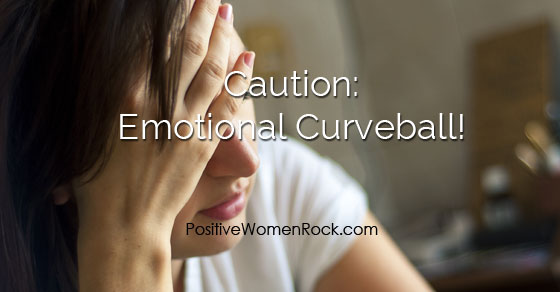Don’t let the past get the better of you in the present.
“Sometimes just as it seems I’m completely rocking my self-confidence, my emotions take over and knock me down again.” My friend was distraught and I felt her pain because like every other woman, I’ve been there many times myself.
Becoming confident often feels like an endless battle, especially with so many outside factors affecting us every moment of every day. Who we truly are inside often takes a back seat to who we must be at times to get work projects completed, keep our relationship as healthy as possible and take care of the kids, teens or our parents, depending on our situation.
As women, we’re programmed early on to care of everyone else first and wait until there’s any leftover time for ourselves. And when is the last time that happened?
Truth is, if we are not healthy mentally, emotionally, physically and spiritually we literally cannot be at our best for those we care about. And the guilty obligation energy of having to do things when our soul is screaming for nurturing creates another layer of negative emotion on top of what already has the power to take us down in an instant.
While our loved ones may do their best to nurture us, nothing trumps the value of me-time and self-nurturing to build self-confidence and cultivate sustained healthy self-esteem. We need it! Me-time is vital because it allows us solitude with our thoughts and feelings and time to really feel who we are inside without the goings-on of family and the world influencing us so dramatically.
I mean, we can expertly manage all life hands us like a clown spinning plates in the circus and then, something resembling a giant snowball of emotion knocks us off our game in an instant. It feels like an avalanche and there’s a good reason for that. It is.
Here’s what happens to our emotions as we go through life and why they seem so powerful when we reach adulthood.
Each time an incident triggers an emotion, it reflects back to a previous time we felt that same emotion. This means, maybe a kid in second grade pushed you into a mud puddle and you felt embarrassed, angry and sad as all the other kids laughed at you. Now, a coworker makes what she thinks is an innocent joke about you and your other coworkers laugh. You jettison back to the same feelings of embarrassment, anger and sadness you experienced as a 7-year old child. But wait, there’s more—as you subconsciously travel back to that time in your past, you pick up all the other experiences that triggered those same emotions throughout your entire life. And that compilation weighs heavy on you at work today when that coworker made a joke at your expense.
Whether we outwardly express our emotion at the time or not, our self-confidence takes a big hit when this happens and that’s what knocks us off our game, making us feel like a child instead of an adult. A child who feels completely incapable of managing adult situations.
Unless we voice it, all of this pain happens silently on a subconscious level. If we do react emotionally, you’ll see that the behavior is much like that 7-year old, not the adult you are now. Have you ever noticed adults act like children when they’re fighting? Now you know why.
What can we do about it? There are ways to release the root cause of the emotion and with it, all those connected with it so you are only experiencing emotions in real-time (meaning, no snowball) just the emotions of right now.
Without releasing them, my experience is that simple awareness of the emotional snowballs makes a tremendous difference because you know why you or someone else is feeling such emotion whether or not you know the root cause (first incident).
What if the next time you or someone else overreacted, you simply said to yourself, “Hey, an emotional snowball,” and let it go. This tactic can reduce what could have become an emotional and destructive conflict into an opportunity to build your self-confidence.



Share your thoughts...